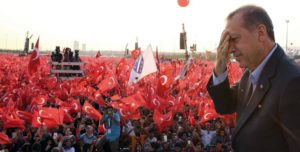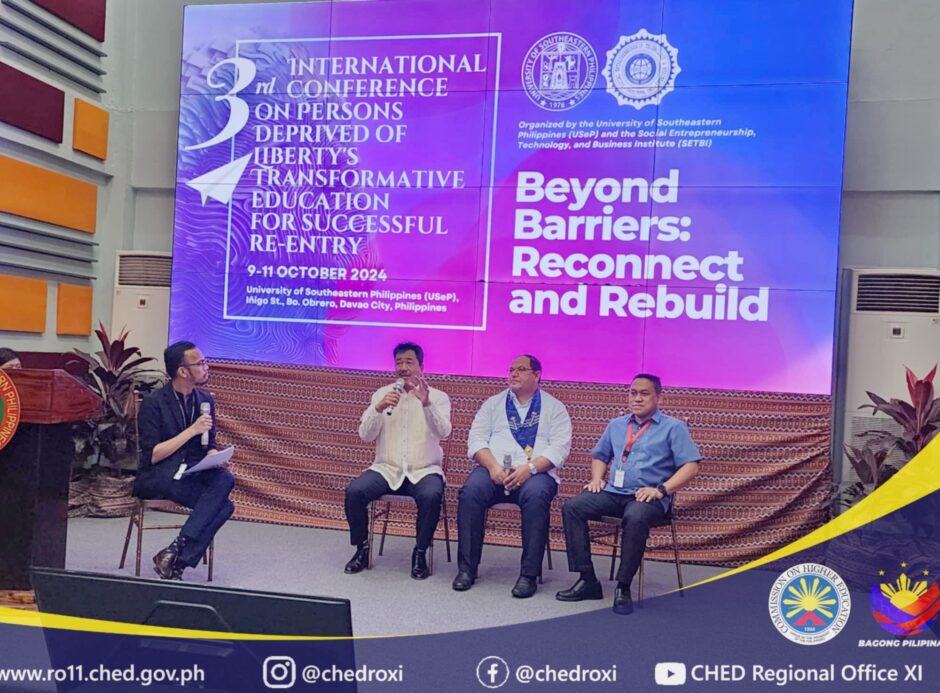 Political Islam made history again on Sunday evening by winning a landslide victory in the first round of Turkey’s June 24 presidential election. Despite the attempts aimed at deposing President Erdogan, President Recep Tayyip Erdogan made history again on Sunday evening by his Justice and Development Party (AK Party), which has been in power since 2002. He received approximately 51.79% of the votes in the first round of the presidential elections and won the presidency again. President Erdogan made history by becoming Turkey’s first executive president and leading his party by an unprecedented number to rule for the next five year until the Republic‘s centennial in 2023. Erdogan has thus been elected as the first president of the new system. Having been in power for 16 years and with 13 elections and referenda wins, Erdogan overcame his closest rival. The President’s hard fought re-election campaign focused on two important factors that led President Erdogan to be reelected: one was national security and the other the religion factor. Erdogan steadily increases the hold of Islam on the nation, squelching other faiths as well as remnants of those supporting the founder of the Republic who held to a pillar of secularism. The Turkish public did not care much about the economy in spite of the Turkish currency being at an all time low. Many citizens apathy about the economy was because they believed that the economic and financial problems were instruments used by foreigners to weaken Turkey.
Political Islam made history again on Sunday evening by winning a landslide victory in the first round of Turkey’s June 24 presidential election. Despite the attempts aimed at deposing President Erdogan, President Recep Tayyip Erdogan made history again on Sunday evening by his Justice and Development Party (AK Party), which has been in power since 2002. He received approximately 51.79% of the votes in the first round of the presidential elections and won the presidency again. President Erdogan made history by becoming Turkey’s first executive president and leading his party by an unprecedented number to rule for the next five year until the Republic‘s centennial in 2023. Erdogan has thus been elected as the first president of the new system. Having been in power for 16 years and with 13 elections and referenda wins, Erdogan overcame his closest rival. The President’s hard fought re-election campaign focused on two important factors that led President Erdogan to be reelected: one was national security and the other the religion factor. Erdogan steadily increases the hold of Islam on the nation, squelching other faiths as well as remnants of those supporting the founder of the Republic who held to a pillar of secularism. The Turkish public did not care much about the economy in spite of the Turkish currency being at an all time low. Many citizens apathy about the economy was because they believed that the economic and financial problems were instruments used by foreigners to weaken Turkey.
In April when Erdogan called for the snap elections, the country’s opposition parties were caught off guard, A combination of the fresh military victory in Afrin with the Turkish war on Kurdish “guerrillas” (PKK) and of the war on Fethullah Gulen’s FETO organization easily gave the upper hand to Mr. Erdogan with a renewed presidency, but more importantly, it resulted from his newly expanded presidential powers acquired by abolishing the post of Prime Minister. This troublesome scene is compounded because the Turkish society is in a defense mode with a kind of war in Syria, in Iraq, and on the homeland after the failed coup attempt.
President Recep Tayyip Erdogan rose from humble beginnings to become Turkey’s most powerful politician since Ataturk. His supporters adore him as a transformative figure who modernized Turkey and was sent by Allah to save the Turkish and Muslim nations, but critics see him as an increasingly authoritarian and despotic leader who harbors ambitions to establish a “one- man” rule. His carefully strategized reelection campaign highlights his strong track record, national security, and religion. Making campaign stops across the country, he asked for support from conservatives and religious Turks. There is no doubt Erdogan’s dream is to expand his powers to become more like the US executive presidential style but to eliminate all weak parties and have only two strong parties to compete in future elections.
Erdogan’s critics say he aims to destroy Turkey’s secular democracy, imposing his conservative Islamic values on society by silencing his rivals and critical media. For example, to prevent Kurdish Party leader Selahattin Demirtas, the Pro Kurdish Peoples Democratic Party (HDP)'s presidential candidate, from competing in the elections, he had him imprisoned and allowed his own friend to be elected to the parliament in 2015. He arrested and jailed so many democratically elected mayors in spite of all their challenges. Selahattin Demirtas is still imprisoned by the ruling party, along with a good portion of the HDPs Parliamentarians and mayors. But the HDP managed to pass the electoral threshold with 70 Parliamentarians in the Turkish Meclis, the Grand National Assembly.
Many Turks believe that Islam should guide the State rather than the State corralling Islam. These Turks have been gaining power over the decades despite efforts by the ruling elites, like the secular CHP party, to block them at the ballot box and even to keep them out of politics all together. In 1996, an Islamist party, the Welfare Party, in which Erdogan used to be a member, managed to enter the ruling government, but Kemalist secular leaders overthrew the Islamic government and banned the party from the politics. Then, Erdogan tried another strategy and established a political party, the Justice and Development Party, in 2001, one that formally disowned any programmatic religion but caused a religious political divide in Turkey. The divide is real and even widened during this election. Erdogan did not neglect exploiting the Islamic religion, shouting from the top of the campaign bus telling the crowd, “These are enemies of Islam, closing the mosques and not allowing Muslim women to wear head scarves.”
This is not the first or the last time Erdogan has used or will use religion for votes. Erdogan is considered to be a good Muslim; meanwhile, opposition candidate Muharrem Ince who was fielded by the main opposition Republican People’s Party (CHP), appears primarily to be an enemy of Islam and a bad Muslim. Consequently, wherever Erdogan goes on his campaign trail, his rhetoric appeals to the conservative focusing on religious symbols, such as mosques, minarets, and mihrabs.
There was no doubt that opposition party candidate Muharrem Ince had a strong performance, but most of the conservatives do not trust the CHP because of its past history and see the party as the main obstacle to conservativism. In fact, most of the religious groups have already issued a fetva to vote for Erdogan even if they know Erdogan and his party are full of corruption; however, they cannot see themselves voting for someone from the CHP party because most of Turkey’s Islamists openly resisted secularism through grassroots organization and appropriation of the democratic system. In spite of their dissatisfaction with he AKP party and its corruption, most of the religious movements have reacted to the secular CHP party.
Like many religious cohorts in Turkey, Erdogan attached a special significance to the Ottoman Empire because he considers it as a major chapter in both Islamic history and the history of the Turks. Indeed, Erdogan believes that Turkish civilization peaked with the Ottomans in the 16th century. Many Muslims cast a skeptical eye on the achievement of Mustafa Kemal and the founder of the Turkish Republic and by extension the CHP party. Although Ataturk may have salvaged a sovereign Turkish State from the dismantling of the Ottoman Empire after World War I and thwarted direct colonization by the West as in Iran, Syria, and Iraq, they adopted too much from the western culture in the view of many opposing secularism. President Erdogan knows how to appeal to the hearts of his followers. Thus, whenever his status gets politically difficult for him and his party, he reads from the Quran next to his mother’s grave, sometimes prays at the mosque, sometimes teaches the Quran to his grandchildren, and sometimes goes to kaaba.
Turkey is entering a transformation period in its governing system. It will be very important to observe the 48 percent who did not vote for Erdogan and to assess how they will fare under the new presidential system. The political struggle in Turkey will certainly continue under this new system. Whether the election campaign was unfair and the result rigged or whether the national media celebrated only Erdogan with other media being squelched does not matter anymore. In appearance the majority of the Turkish people have made up their minds, and foreign countries have no choice but to respect the outcome of the elections.
Dr. Aland Mizell is President of the MCI and a regular contributor to Mindanao Times. You may email the author at:aland_mizell2@hotmail.com

